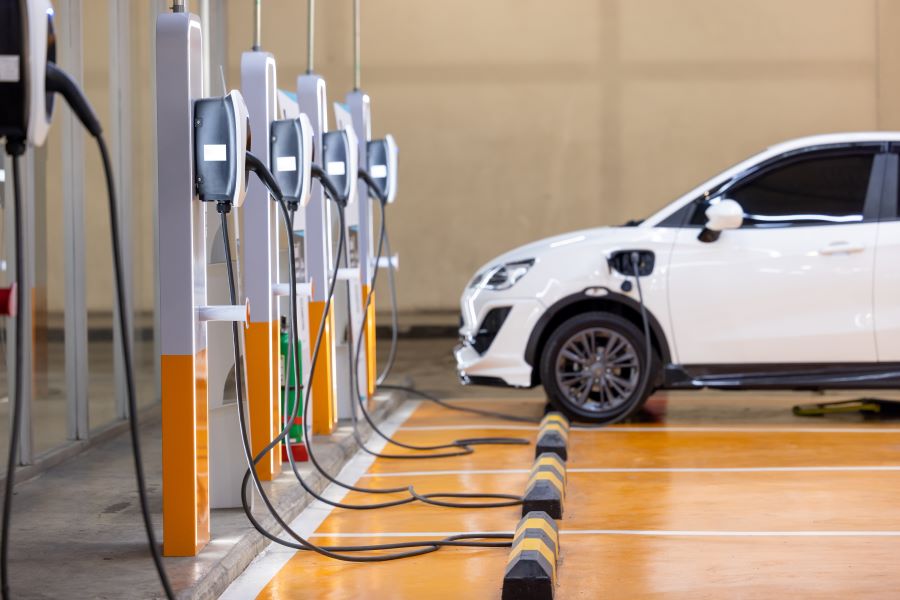Electric Car Chargers for Home: Understanding Your Options
The rise of electric vehicles (EVs) has led to an increased demand for home charging solutions. As more drivers make the switch to electric, understanding the various options for home EV chargers becomes essential. This article explores the different types of electric car chargers available for residential use, their features, and considerations for installation.

What are the different levels of electric car chargers?
Electric car chargers are typically categorized into three levels: Level 1, Level 2, and Level 3 (also known as DC fast charging). For home use, Level 1 and Level 2 chargers are the most common options.
Level 1 chargers use a standard 120-volt household outlet and come with most electric vehicles. While they are the slowest charging option, they require no additional installation and can be suitable for drivers with limited daily mileage.
Level 2 chargers operate on a 240-volt circuit, similar to what large appliances like dryers use. These chargers offer significantly faster charging speeds compared to Level 1 and are the most popular choice for home installation.
How fast do Level 2 EV chargers for home charging work?
Level 2 EV chargers for home use typically provide charging speeds between 3.7 kW to 19.2 kW, depending on the charger’s amperage and the vehicle’s onboard charger capacity. On average, a Level 2 charger can add about 25 to 30 miles of range per hour of charging.
The actual charging speed can vary based on factors such as the vehicle’s battery size, the charger’s power output, and the car’s maximum charging rate. Most residential Level 2 chargers operate at 32 or 40 amps, which is sufficient for overnight charging of most electric vehicles.
What features should you look for in an electric car charger for home?
When selecting an electric car charger for home use, several key features are worth considering:
-
Amperage: Higher amperage chargers can deliver more power, potentially reducing charging times.
-
Smart charging capabilities: Some chargers offer Wi-Fi connectivity, allowing users to monitor and control charging remotely via smartphone apps.
-
Weather resistance: If the charger will be installed outdoors, ensure it has appropriate weather-resistant ratings.
-
Cable length: A longer cable provides more flexibility in parking and connecting your vehicle.
-
Safety certifications: Look for chargers that meet safety standards such as UL certification.
-
Compatibility: Ensure the charger is compatible with your specific electric vehicle model.
How do you choose the fastest electric car charger for home use?
To select the fastest electric car charger for home use, consider the following factors:
-
Your vehicle’s maximum charging rate: Check your EV’s specifications to determine its maximum AC charging capacity.
-
Your home’s electrical capacity: Consult an electrician to determine the maximum amperage your home’s electrical system can support.
-
Charger amperage: Choose a charger with the highest amperage that both your vehicle and home electrical system can handle.
-
Installation location: The proximity of the charger to your electrical panel can affect the maximum amperage available.
Remember that the fastest charger may not always be necessary if your daily driving habits don’t require rapid charging. Balance speed with cost and practicality for your specific needs.
What is involved in installing a Level 2 EV charger at home?
Installing a Level 2 EV charger at home typically involves the following steps:
-
Electrical assessment: An electrician evaluates your home’s electrical capacity and determines if upgrades are necessary.
-
Permitting: Obtain any required permits from local authorities for electrical work.
-
Installation location: Choose a convenient and safe location for the charger, considering cable reach and proximity to the electrical panel.
-
Wiring: A dedicated 240-volt circuit is installed from the electrical panel to the charger location.
-
Mounting: The charging unit is securely mounted to the wall or on a pedestal.
-
Testing and inspection: The installation is tested for proper functionality and may require an inspection by local authorities.
Professional installation is recommended to ensure safety and compliance with local codes.
How much does it cost to install an EV fast charger for home use?
The cost of installing an EV fast charger at home can vary significantly based on several factors. Here’s a general overview of potential costs:
| Item | Cost Range (USD) |
|---|---|
| Level 2 EV Charger | $300 - $1,000 |
| Electrical Work | $250 - $1,500 |
| Permits | $50 - $250 |
| Additional Wiring (if needed) | $200 - $1,000 |
| Total Estimated Cost | $800 - $3,750 |
Prices, rates, or cost estimates mentioned in this article are based on the latest available information but may change over time. Independent research is advised before making financial decisions.
The wide range in costs is due to variations in charger features, local labor rates, and the complexity of the installation. Some areas may offer incentives or rebates for EV charger installation, which can help offset costs.
Electric car chargers for home use offer convenience and flexibility for EV owners. By understanding the different types, features, and installation requirements, you can make an informed decision about the best charging solution for your needs. Whether opting for a basic Level 2 charger or a more advanced smart charging system, home EV charging can significantly enhance the electric vehicle ownership experience.




